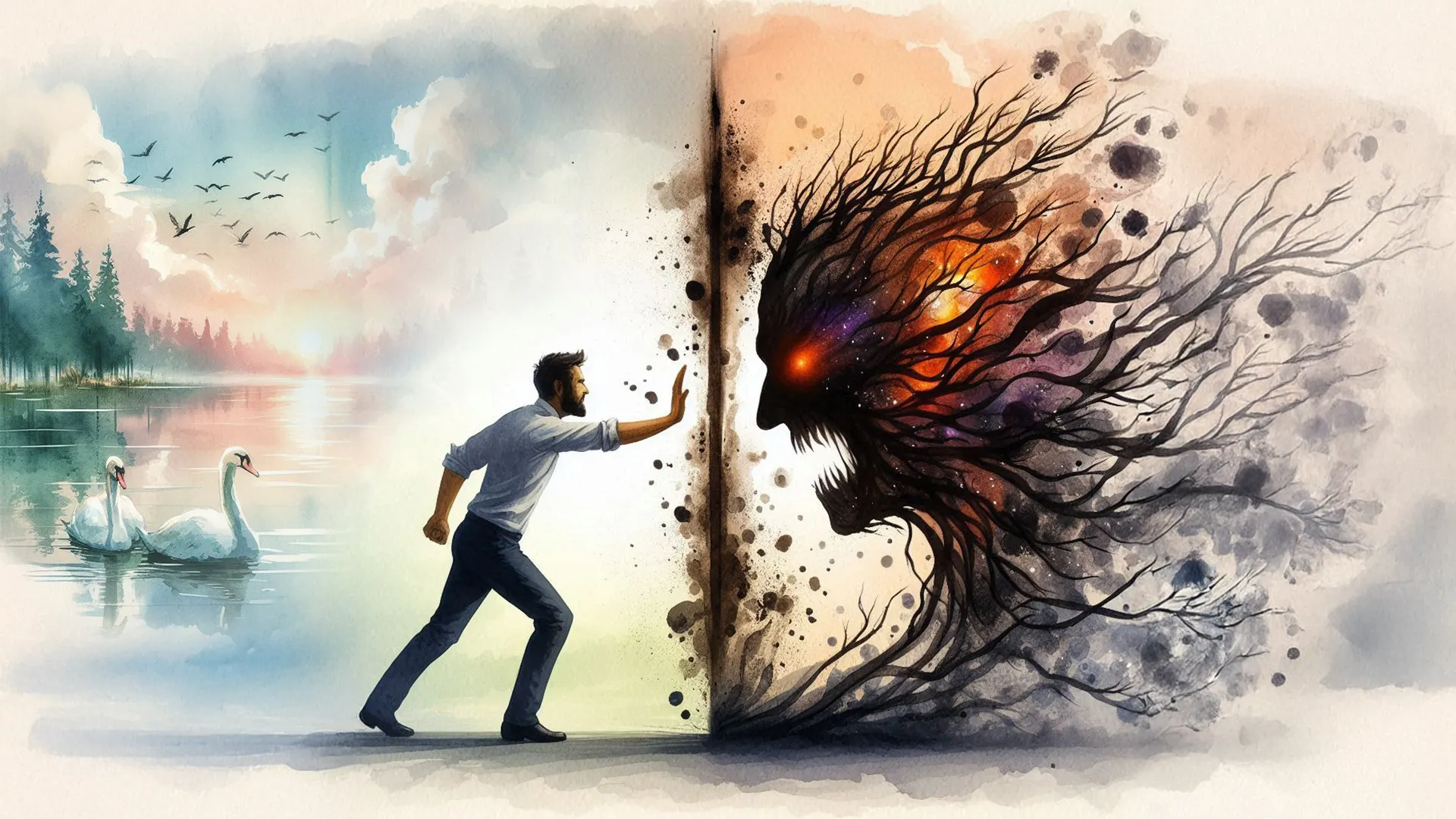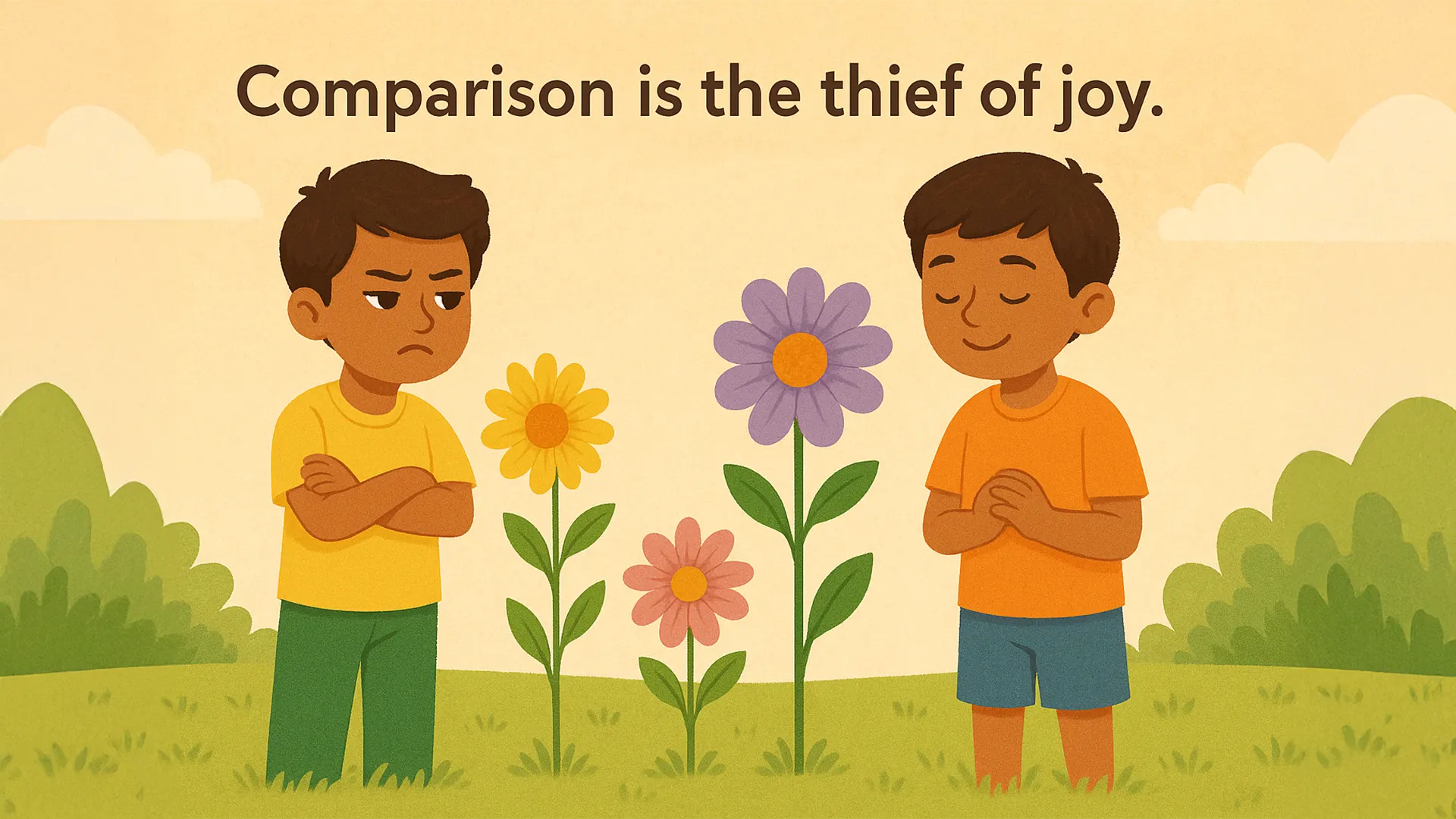Anger is one of the most destructive emotions we experience as human beings. It hijacks our peace of mind, clouds our judgment, and often causes us to act in ways we later regret. In just one moment of fury, the wisdom we’ve gathered over a lifetime and the social grace we’ve worked hard to develop can vanish into thin air.
We’ve all witnessed anger destroy relationships, tear families apart, and even disrupt entire organisations. Tempers flare, and we babble—often saying things we wish we could take back. It’s just like writing an angry email and hitting send too soon. Once it’s out, the damage is done. That’s why it’s wise to follow this golden rule: if you draft an email in anger, wait 24 hours before sending it.
The Hidden Cost of Anger
Let’s reflect on a simple story.
A boy had a disagreement with a close friend over something trivial. In the heat of the moment, he shouted, “I HATE YOU!”—not once, but twice. When his rage faded, he realised how disproportionate his reaction had been. He apologised, and the friend accepted it. But something fundamental had changed. The trust never returned to what it once was, and even the closeness was never the same.
Anger often flares up in situations beyond our control—traffic jams, delayed flights, harsh words from others. Whether it’s mild irritation or full-blown rage, it has real consequences—not just for others, but for ourselves.
Physiologically, anger triggers the release of adrenaline and cortisol, our stress hormones. While occasional outbursts may not leave lasting harm, chronic anger can lead to a host of health problems: high blood pressure, insomnia, headaches, digestive issues, eczema, and more.
No wonder ancient Indian scriptures describe anger as a manas rog—a mental affliction.
Ancient Wisdom on Anger
The Bhagavad Gita offers a profound insight into the cycle of anger and its consequences:
क्रोधाद्भवति सम्मोहः सम्मोहात्स्मृतिविभ्रमः |
स्मृतिभ्रंशाद् बुद्धिनाशो बुद्धिनाशात्प्रणश्यति ||
krodhād bhavati sammohaḥ sammohāt smṛiti-vibhramaḥ
smṛiti-bhranśhād buddhi-nāśho buddhi-nāśhāt praṇaśhyati
Anger leads to clouding of judgment, which results in bewilderment of memory. When memory is bewildered, the intellect gets destroyed; and when the intellect is destroyed, one is ruined. (Gita 2.63)
In other words, anger clouds our judgment, scrambles our memory, erodes our intellect, and leads to our downfall.
Mark Twain captured this perfectly when he said:
“Anger is an acid that can do more harm to the vessel in which it is stored than to anything on which it is poured.”
The Resentment Trap
Often, when we feel wronged, we harbour resentment and even fantasise about revenge, without realising that such thoughts only corrode us. As the saying goes, the only thing that worsens the more you nurture it is a grudge.
Here’s a story to illustrate:
Suresh was the only tailor in his village. With no competition, he overcharged and treated his customers poorly. One day, an elderly woman moved into the village and opened her own small tailoring shop. She was skilled and kind, and soon customers flocked to her. Suresh, burning with jealousy, couldn’t handle her success.
His wife, trying to appease him, bought the woman’s shop for one lakh rupees under the condition that she leave the village. That night, still seething with rage, Suresh burned the shop down. The next morning, his wife was devastated. “What have you done?” she cried. “I bought that shop for you!”
That’s what anger does—it makes us destroy the very things meant to bring us peace.
The Root Cause of Anger: Desire
The Gita says that anger is just a symptom. The root cause lies deeper in desire.
When we become attached to outcomes or possessions, desire is born. If those desires are fulfilled, we are content. But if they are obstructed, we become frustrated. Frustration gives rise to anger.
The solution?
विषया विनिवर्तन्ते निराहारस्य देहिनः |
रसवर्जं रसोऽप्यस्य परं दृष्ट्वा निवर्तते ||
viṣhayā vinivartante nirāhārasya dehinaḥ
rasa-varjaṁ raso ’pyasya paraṁ dṛiṣhṭvā nivartate
Aspirants may restrain the senses from their objects of enjoyment, but the taste for the sense objects remains. However, even this taste ceases for those who realise the Supreme. (Gita 2.59)
In simpler terms: Replace worldly cravings with divine ones—desire to serve, love, and know. Spiritual aspirations elevate the mind, and in their purity, they dissolve anger from its very root.
Practical Life Hacks to Reduce Anger
While spiritual evolution is the long-term cure, here are some practical strategies you can apply right now:
- Identify Your Triggers
Recognise what sparks your anger. Is it when your child ignores your advice? Or when a coworker interrupts you? Understanding your patterns helps you prepare for them. - Delay the Reaction
Our initial response comes from the impulsive, emotional right brain. Wait a few seconds. Breathe. This gives your rational left brain time to respond instead.
Take a tip from a village woman who struggled with anger. A sage gave her a bottle and told her to sip it whenever she felt rage rising. It worked like magic! When she returned for more, the sage revealed: “It was only water.” But those few seconds of delay made all the difference. - Channel Your Energy Differently
Aditya Birla, chairman of Hindalco, once faced a situation where a senior executive cost the company crores in a poor decision. He wanted to fire him, but instead, sat down and wrote out all the executive’s contributions over the years. By the time he called him in, his anger had cooled, and he made a rational, compassionate choice.
The result? A stronger company culture rooted in empathy and restraint. - Avoid Tamo Guna (The Mode of Ignorance)
According to Vedic philosophy, anger stems from Tamo Guna—the mode of darkness and ignorance. Reduce this influence by mindfully choosing what you read, watch, listen to—and especially what you eat.
Something as simple as cutting down on spicy, aggravating foods like chillies can have a surprising impact on emotional regulation.
In Conclusion
Anger may seem like an outward explosion, but it is an inward poison. The more we indulge it, the more it corrodes our inner peace, health, and relationships. But by understanding its roots, watching our triggers, and cultivating higher desires, we can begin taming the fire within—one breath, pause, and conscious choice at a time.
Now It’s Your Turn
What’s your go-to anger management trick? A breath technique? A walk? Reflect upon this wonderful knowledge shared by Swami Mukundananda and share it with everyone in the comment box.









What our Participants say